Hey there! If you've ever wondered about the best practices for sharing equipment in a collaborative space, you're not alone. Establishing a clear shared equipment use policy is crucial for maintaining harmony and efficiency among users. It not only sets expectations but also ensures that everyone has access to the tools they need when they need them. Curious about how to create an effective policy? Read on!

Purpose and Scope
Shared equipment use policies are essential in organizational environments, facilitating efficient resource management and promoting responsible usage among team members. The primary purpose focuses on delineating the guidelines and responsibilities regarding the utilization of equipment, such as computers, projectors, and laboratory tools, within shared workspaces. This policy covers all employees, interns, and visitors who access these resources, ensuring equal access and maintenance standards. It serves to minimize conflicts, reduce equipment wear and tear, and address issues related to equipment downtime. Proper adherence to the policy enhances productivity, encourages collaborative efforts, and maintains a respectful environment where shared resources can be accessed without disruption or misuse.
Responsibilities and Procedures
Shared equipment, such as printers, copiers, and office computers, plays a crucial role in organizational efficiency and collaboration. Employees must adhere to specific responsibilities to ensure proper usage and maintenance of these resources, which are often located in common areas like the main office or break room. Proper training sessions, scheduled quarterly, outline the operating procedures for each piece of equipment, emphasizing the importance of responsible handling. Reporting malfunctions immediately to the IT department guarantees timely repairs, minimizing downtime. Additionally, maintaining cleanliness, such as clearing paper jams or replacing toner, fosters a respectful environment for all users. Documenting usage statistics every month can help monitor usage trends and ensure equitable access among team members.
Access and Usage Guidelines
Shared equipment use policies establish clear access and usage guidelines to ensure the efficient and responsible use of communal resources in institutions or organizations. These guidelines outline key procedures, such as scheduling (using a shared calendar system like Google Calendar), reservation protocols (including a 24-hour notice requirement), and adherence to safety practices (following OSHA regulations for equipment operation). Importance is placed on training sessions (mandatory orientations every quarter) that equip users with knowledge of proper handling and maintenance of equipment. Users must be aware of consequences for misuse (such as suspension for violations) and the necessity for regular equipment inspections (conducted monthly by designated staff) to maintain operational integrity. Respecting these guidelines fosters a spirit of collaboration and accountability among users, ultimately benefiting the entire community.
Maintenance and Reporting
Shared equipment in collaborative environments requires regular maintenance and timely reporting to ensure optimal functionality. Each piece of equipment, such as high-end printers or advanced projectors, demands routine checks--ideally every month--to avoid malfunction. Users must log any issues encountered during operation in the designated maintenance logbook, which is stored in the equipment room (Room 204) for easy access. Reporting damaged or malfunctioning devices immediately ensures quick resolution, maintaining workflow efficiency. Additionally, periodic training sessions for users in September can enhance understanding of proper usage and care, reducing wear and tear on shared resources, thus promoting longevity and reliability.
Consequences for Non-compliance
Failure to adhere to the shared equipment use policy can result in significant repercussions within the organizational framework. Non-compliance, such as neglecting proper equipment care or unauthorized usage, may lead to immediate suspension of access privileges to valuable resources, including high-end machinery or essential software systems. Repeated violations could result in additional measures, including formal reprimands documented in personnel records, mandatory training sessions on policy adherence, and potential financial liabilities for repair or replacement of damaged equipment. These consequences aim to foster a culture of responsibility and respect for shared resources, ensuring optimal operational efficiency and collaboration among team members.

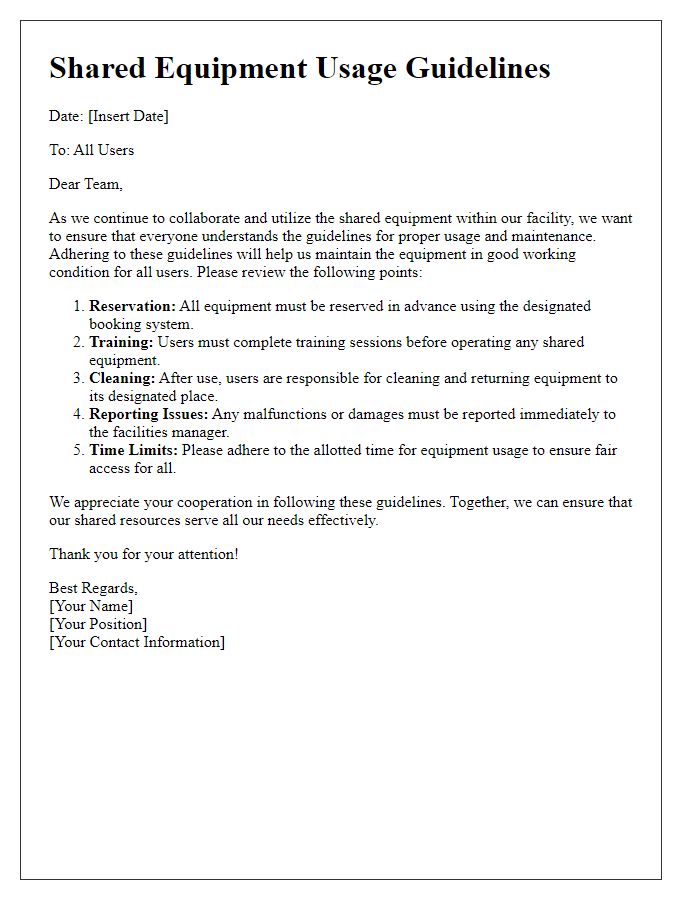
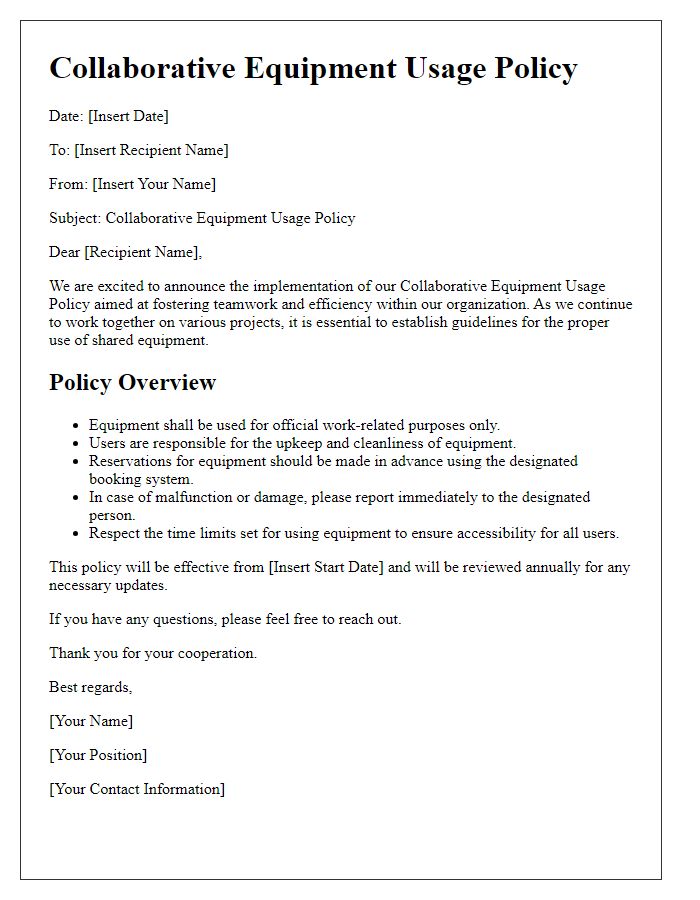
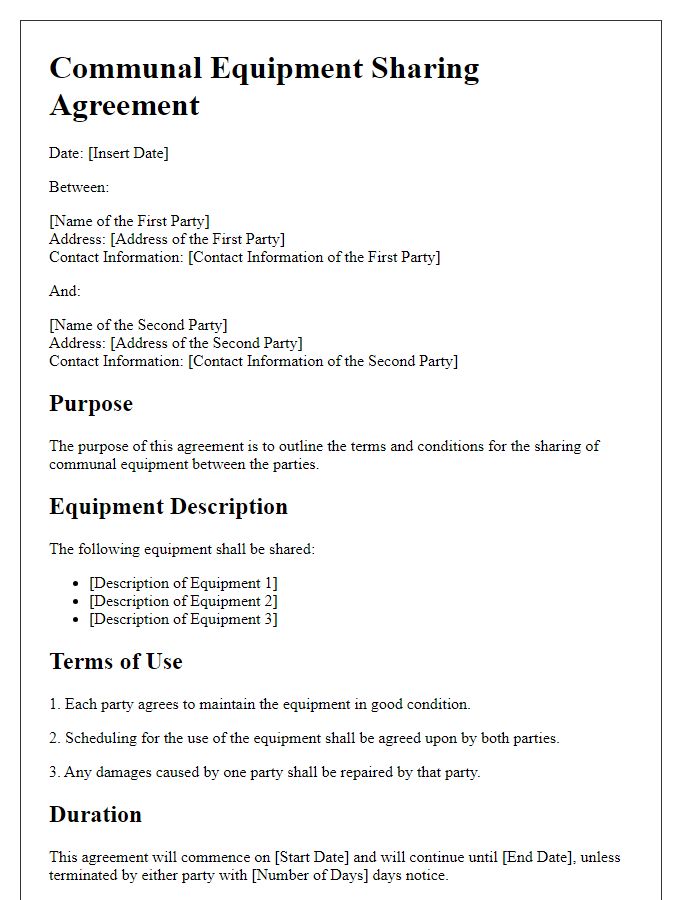
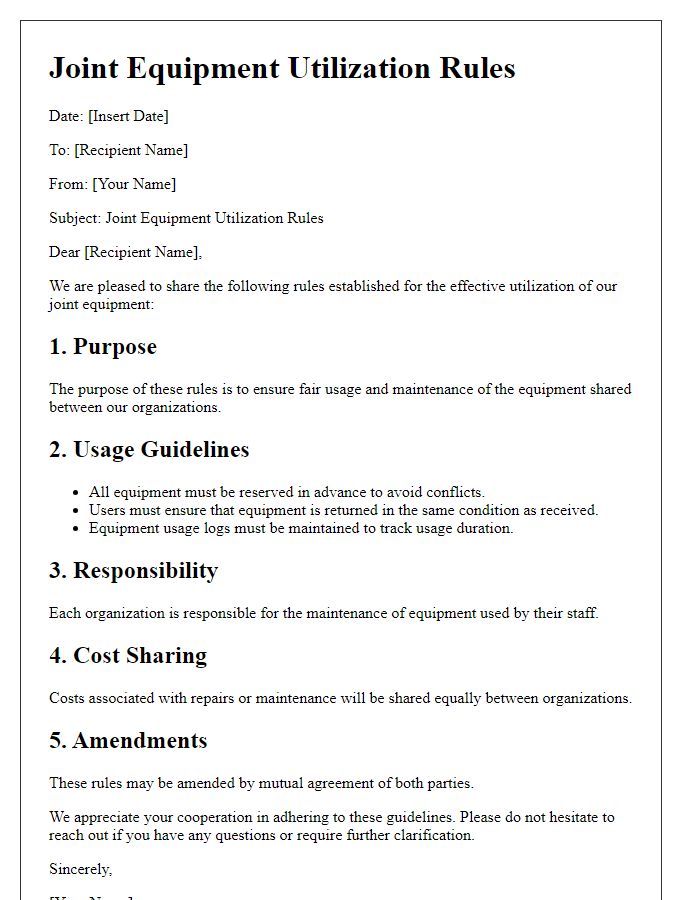
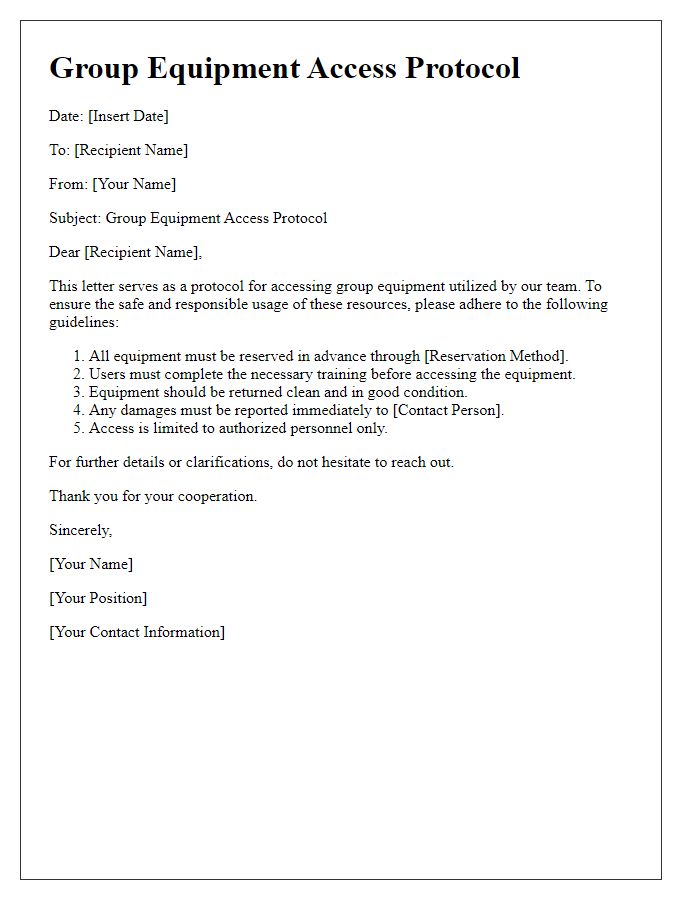
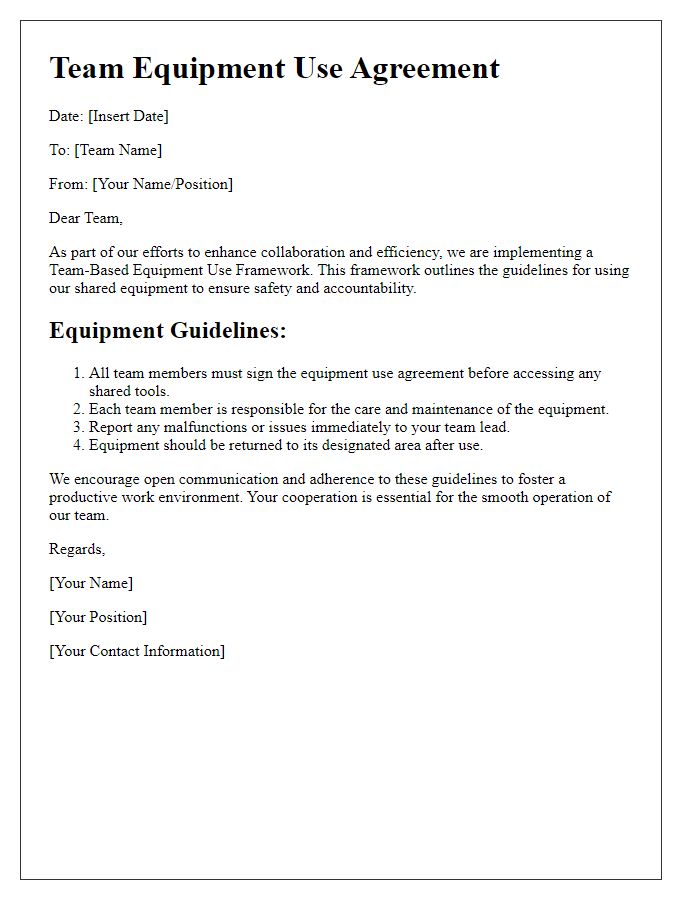
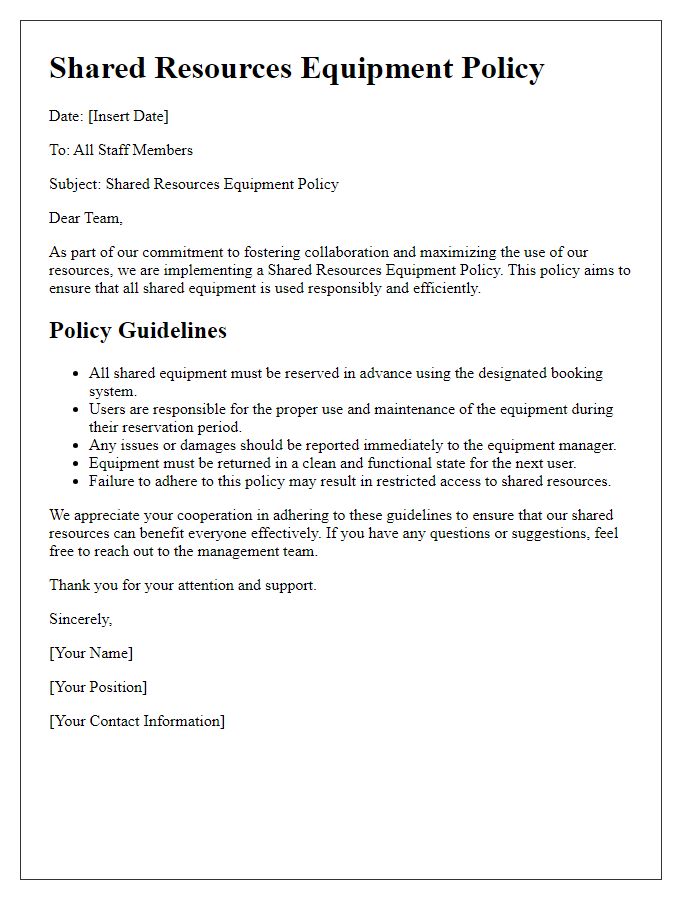
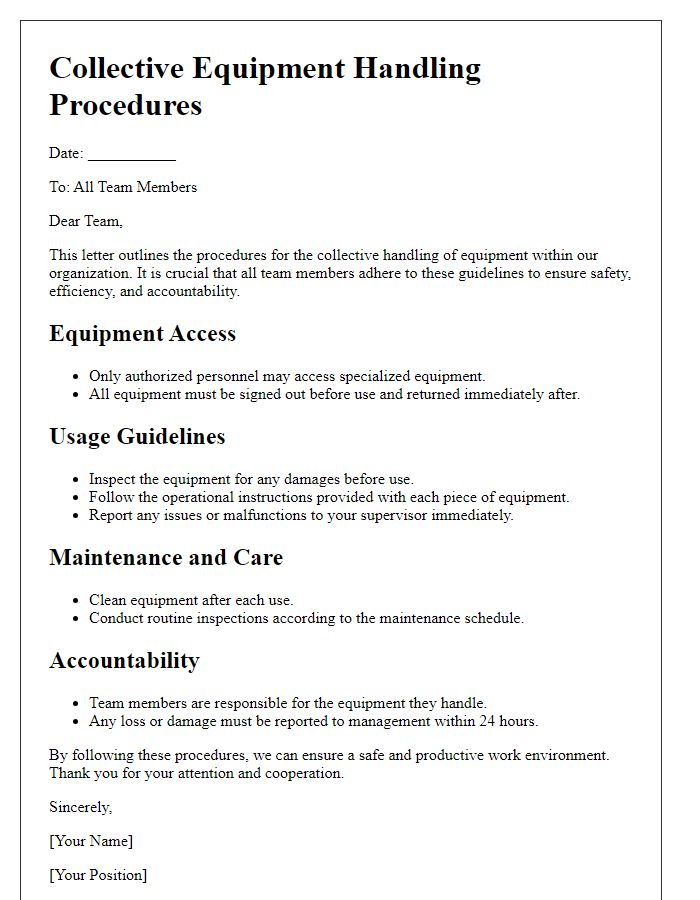
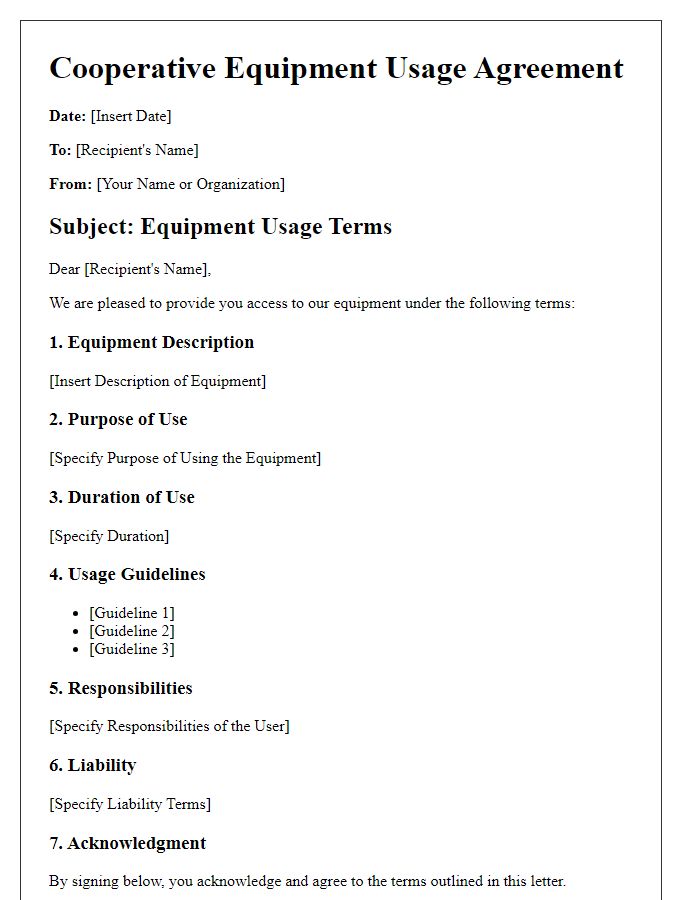
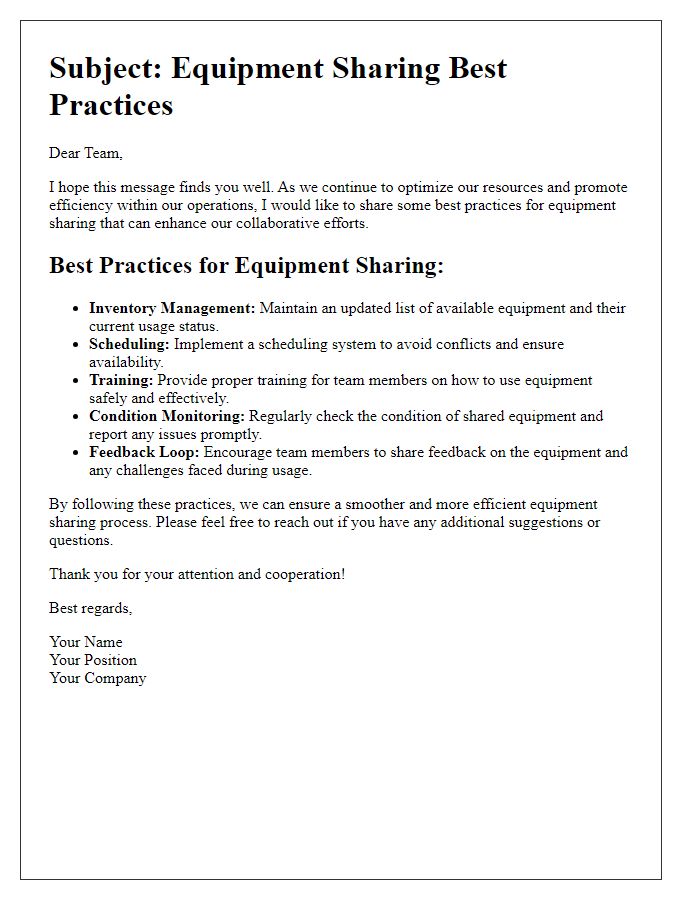


Comments